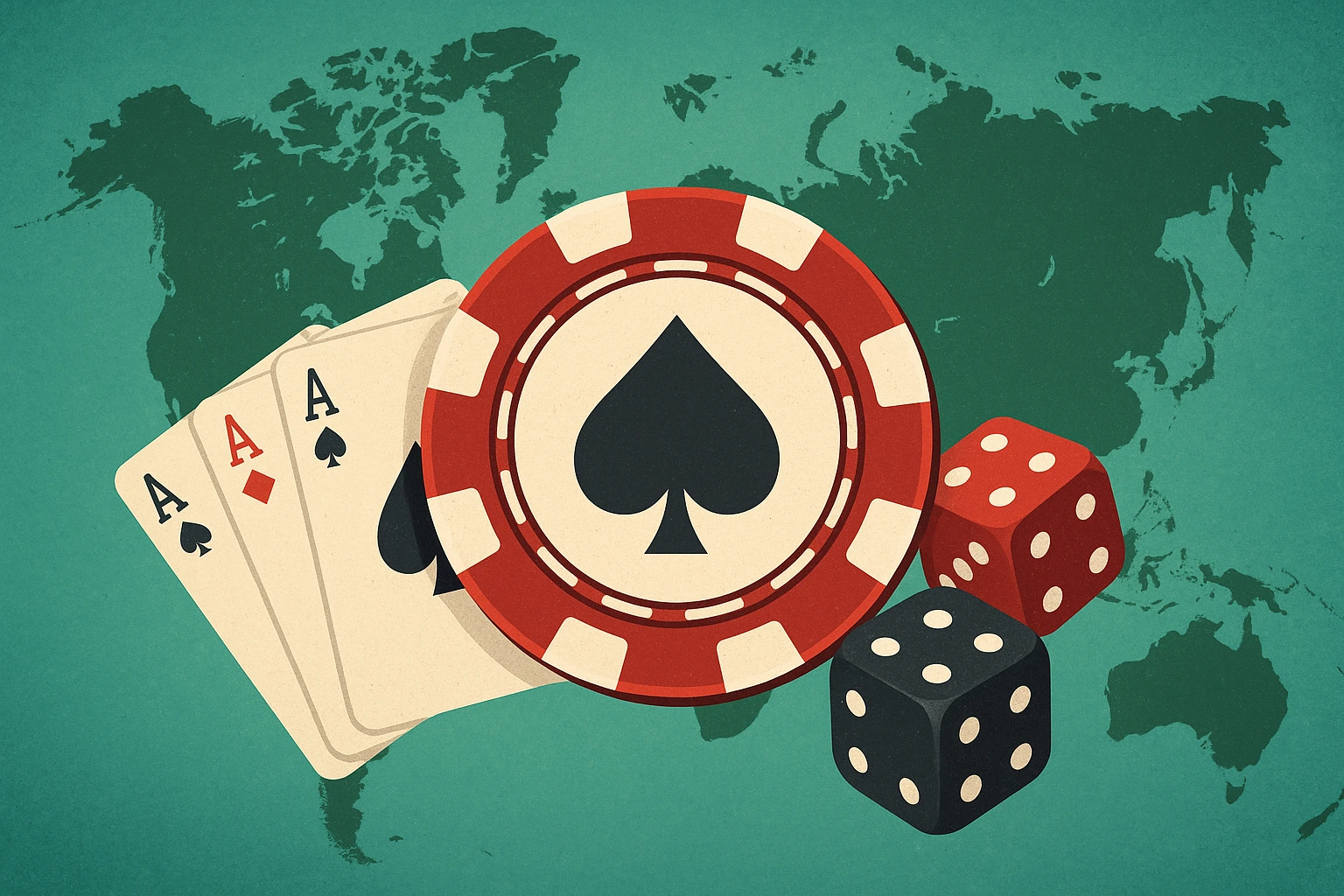
Poker is a game that transcends borders, captivating players in casinos, online platforms, and living rooms across the globe. While Texas Hold’em is the most widely recognized variation, poker has taken on unique forms in different cultures, each adding its own flavor to this timeless game. In this article, we explore fascinating facts about poker’s global presence and dive into some of the unique variations played around the world.
The Global Appeal of Poker
1. A Universal Game of Skill and Chance
Poker’s blend of strategy, psychology, and luck makes it a universal game. It’s a favorite pastime from Las Vegas to Macau, bringing together people from all walks of life. Whether played for high stakes or just for fun, poker has a way of uniting players across cultural and linguistic divides.
Want to sharpen your skills? Try these 13 Poker Challenges to Improve Skills
2. The Poker Boom and Online Revolution
The early 2000s saw a massive surge in poker’s popularity, fueled by the “Moneymaker Effect” and the rise of online poker platforms. Today, millions of players log in daily to compete in virtual tournaments, proving that poker’s appeal knows no bounds.
3. Cultural Adaptation
In different parts of the world, poker reflects local customs and traditions. From the way games are played to the stakes involved, poker has evolved to suit the preferences of its players.
Unique Poker Variations Around the World
1. Chinese Poker (China)
A popular game in Asia, Chinese Poker is vastly different from Texas Hold’em. Players are dealt 13 cards and must arrange them into three hands: two five-card hands and one three-card hand. The goal is to create stronger hands than your opponents across all three combinations. It’s a game of strategy and creativity that challenges traditional poker skills.
2. Omaha Poker (United States)
Though similar to Texas Hold’em, Omaha Poker has its own unique rules. Players are dealt four hole cards instead of two and must use exactly two of them, combined with three community cards, to form the best hand. This variation is especially popular in Europe, including many of the best poker rooms in Europe, and among seasoned poker enthusiasts.
3. Teen Patti (India)
Teen Patti, meaning “Three Cards,” is an Indian poker variant rooted in cultural traditions. It’s often played during festivals and family gatherings. The rules are simpler than traditional poker, making it accessible to players of all ages. Teen Patti emphasizes bluffing and social interaction, making it a lively and engaging game.
4. Pai Gow Poker (China/United States)
A fusion of poker and the traditional Chinese game of Pai Gow, this variation is played in casinos worldwide. Players receive seven cards and must divide them into a five-card hand and a two-card hand. To win, both hands must beat the dealer’s hands. It’s a slower-paced game that emphasizes strategy and decision-making.
5. Badugi (South Korea)
Badugi is a lowball poker variant that originated in South Korea. Unlike traditional poker hands, Badugi players aim for the lowest hand consisting of four unique cards of different suits. The game’s simplicity and quick pace make it a favorite among casual players.
6. Stud Poker (United States)
Stud Poker is a classic variation popular in the United States. Unlike Texas Hold’em or Omaha, players receive a combination of face-up and face-down cards over multiple betting rounds. Stud games, like Seven-Card Stud, were the most popular poker variants before the rise of Texas Hold’em.
Fascinating Poker Facts from Around the Globe
- Macau: The Gambling Capital of the World
While Las Vegas is famous for its poker rooms, Macau has emerged as the top destination for high-stakes poker. The city attracts elite players from around the world, offering games with millions on the line. - The World Series of Poker (WSOP)
The WSOP is the ultimate poker tournament, drawing participants from over 100 countries. Its Main Event is a dream for many players, with winners becoming global icons.
Poker teaches more than just gameplay. Discover Poker Benefits Beyond Money
- Poker in Pop Culture
Movies like Casino Royale and Rounders have brought poker to mainstream audiences, showcasing its drama and strategy. - Poker Superstitions
In some cultures, players bring lucky charms or follow rituals to improve their odds. From lucky hats to specific seating arrangements, superstitions add a unique flavor to the game.
Why Poker’s Diversity Matters
Poker’s variations and cultural adaptations highlight its universal appeal. Whether you’re arranging hands in Chinese Poker or bluffing your way to victory in Teen Patti, the game offers something for everyone. Its ability to adapt while retaining its core principles ensures that poker remains a beloved pastime worldwide.
Poker is more than just a game; it’s a global phenomenon that bridges cultures and generations. By exploring its unique variations and fascinating history, players gain a deeper appreciation for the game’s rich diversity. So why not try a new variant and experience poker from a different perspective? The next hand you play might just be your best yet.
Explore more insights, tips, and strategies at Bluffing Monkeys
